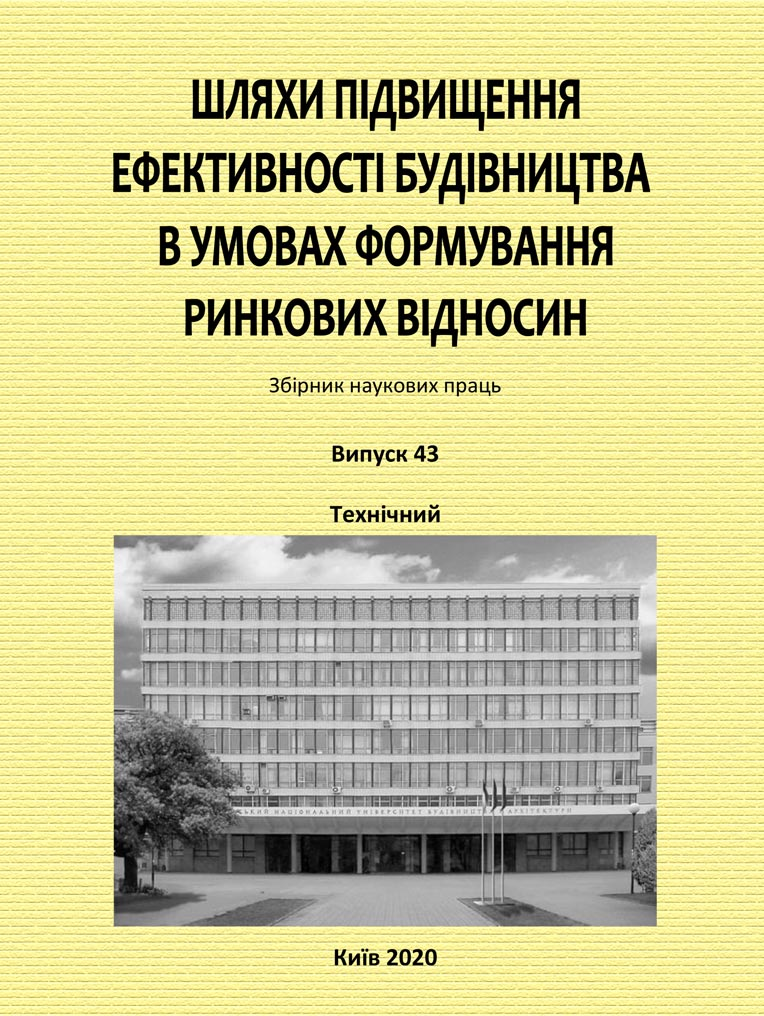Innovative development of human capital as an important factor of the economic growth of construction industry
DOI:
https://doi.org/10.32347/2707-501x.2019.42.179-188Keywords:
human capital, construction industry, innovative development, investing in the development of human capital.Abstract
In Ukraine, with relatively large amounts of investment in human capital, investment efficiency remains relatively low, so the problem of increasing innovative human capital by improving the efficiency of investing and improving the efficiency of public institutions responsible for its formation and development, which is the basis of economic growth and competitiveness construction industry.
The purpose of the article is to conduct analytical studies of the process of investing in the innovative development of human capital and foreign experience of investing in the development of human capital.
It is determined that investments in innovative development of human capital depend to a large extent on the expenditures of the consolidated budget of Ukraine for socio-cultural events and education, which have significantly decreased in recent years (for education - from 19.1% in 2014 to 16.8% in 2018). ., for health care - from 10.9% in 2014 to 9.3% in 2018, for social protection - by 1.7%). Insufficient government funding for education, health care, spiritual and physical development has hindered the development of innovative human capital, economic growth and increased competitiveness of the construction industry in recent years.
The article discusses the impact of innovative human capital development on the economic growth of the construction industry. Much attention is paid to investing in the innovative development of human capital of Ukraine and the progressive foreign experience of solving this problem. It is noted that the orientation of the Ukrainian economy and construction industry in particular on the formation and development of innovative human capital should be ensured by comprehensive measures implemented by central and territorial bodies of state power, bodies of management of the construction industry, employers and representatives of education and science, public employment service by deepening engagement with the EU through existing partnership programs with European countries on innovative human capital development.
References
1. Social indicators of living standards of the population. (2018) Statistical collection.
Grishnova, O. (2015). Investing in human capital in the system of factors of decent work /Monograph, Kiyv.
Scientific and Innovative Activity of Ukraine, 2017. (2018). State Statistics Service of Ukraine.
Arabay, E. (2019) New European Strategy "Europe 2020." Law of the European Union".[Electronic resource] - URL: https://eulaw.ru/content/novayaevropejskayastrategiya-evropa-2020.
Europe 2020. [Electronic resource] - URL: https://ec.europa.eu/eu2020/pdf/COMPLET%20EN%20BARROSO%20%20%20007%20-%20Europe%202020%20-%20EN % 20version.pdf
Europe 2020 initiatives. [Online resource] - URL: https://ec.europa.eu/social/main.jsp?catId=1295&langId=en.
EU cooperation in education and training (ET 2020). [Online] - URL: https://eurlex.europa.eu/legal-content/EN/ALL/?uri=celex%3A52009XG0528%2801%29
Lych, V.M. (2009). Liudskyi kapital Ukrainy: stan, problemy, perspektyvy vidtvorennia. Monohrafiia (Vol.1).
Lych V.M. (2009). Liudskyi kapital Ukrainy: stan, problemy, perspektyvy vidtvorennia Monohrafiia (Vol.2), 236.
Lych V.M. & Malykhina, O.M. (2012). Sutnisna kharakterystyka motyvatsiinoho mekhanizmu efektyvnoho vykorystannia liudskoho kapitalu budivelnoho pidpryiemstva. Shliakhy pidvyshchennia efektyvnosti budivnytstva v umovakh formuvannia rynkovykh vidnosyn, 28, 61-68.
Downloads
How to Cite
Issue
Section
License
Copyright (c) 2020 V. Shovkivska

This work is licensed under a Creative Commons Attribution 4.0 International License.
Authors who publish with this journal agree to the following terms:
- Authors retain copyright and grant the journal right of first publication with the work simultaneously licensed under a Creative Commons Attribution License that allows others to share the work with an acknowledgement of the work's authorship and initial publication in this journal.
- Authors are able to enter into separate, additional contractual arrangements for the non-exclusive distribution of the journal's published version of the work (e.g., post it to an institutional repository or publish it in a book), with an acknowledgement of its initial publication in this journal.
- Authors are permitted and encouraged to post their work online (e.g., in institutional repositories or on their website) prior to and during the submission process, as it can lead to productive exchanges, as well as earlier and greater citation of published work (See The Effect of Open Access).

